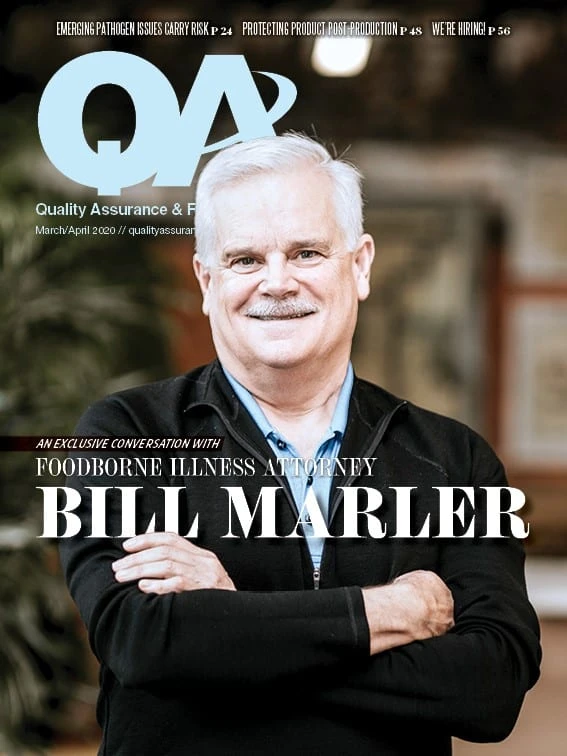
You are under risk of infestation from Indian meal moth (IMM), Plodia interpunctella, when storing or processing natural commodities. What does an IMM Mating Disruption (MD) program offer an IMM IPM Program? Herein James Miller, ACE - Market Manager, PCO with Trécé Incorporated, reviews the important aspects of IMM MD in a Food Safety IPM Program.
1 What is IMM MD?
Mating disruption (MD) is the use of a non-toxic synthetic replica of the female-produced sex pheromone to suppress, deny, or delay the mating cycle of IMM adults.
2 How does IMM MD work?
There are three principle modes of action for IMM MD including sensory overload, false-trail following, and delayed mating. False-trail following is often considered the most important mode of action.
3 How do we use IMM MD?
There are three critical steps for a proper MD program: (1) Calculate the volume of the facility; (2) select the application rate according to label directions, considering abundance of insects; and (3) distribute the dispensers in a grid-like pattern throughout the treatment site.
4 What is the most important part of an IMM MD program?
Managing expectations. IMM mating disruption does not kill or eliminate IMM like traditional insecticides. As part of an IPM program, it is important to discuss the specifics of your program with your provider and understand the merits and usage of mating disruptants, so you know what to expect, and when and if, other IPM methods may be needed for en-hanced efficacy.
5 What about the cost associated with an IMM MD program?
Mating disruption provides three to 12 months of coverage per application depending on the product chosen. While the initial cost may seem high, the value can be shown through a comparison with your current control or management program. How many ULV insecticide treatments, IGR treatments, fumigations, discarded products, plant shutdowns, and other costs can be replaced with a successful mating disruption program?
Get curated news on YOUR industry.
Enter your email to receive our newsletters.
Explore the March April 2020 Issue
Check out more from this issue and find your next story to read.
Latest from Quality Assurance & Food Safety
- Q&A: Sandra Eskin Leads Food Safety Advocacy Organization, STOP, as CEO
- STOP CEO Eskin on Government Layoffs, Challenges in Food Safety
- Mission Barns Announces Cell-Cultivated Pork Fat Launch Following FDA Clearance
- Hearthside Food Solutions Recalls Breakfast Sandwiches Due to Undeclared Allergen
- Walker’s Wine Juice Recalls Pumpkin Juice Due to Botulism Risk
- The Cascading Food Safety Impacts of Tariffs on the Food Industry
- Tyson Ventures Calls Startups to Apply for Tyson Demo Day
- Student Finalists Selected for IFT Product Development Competitions






